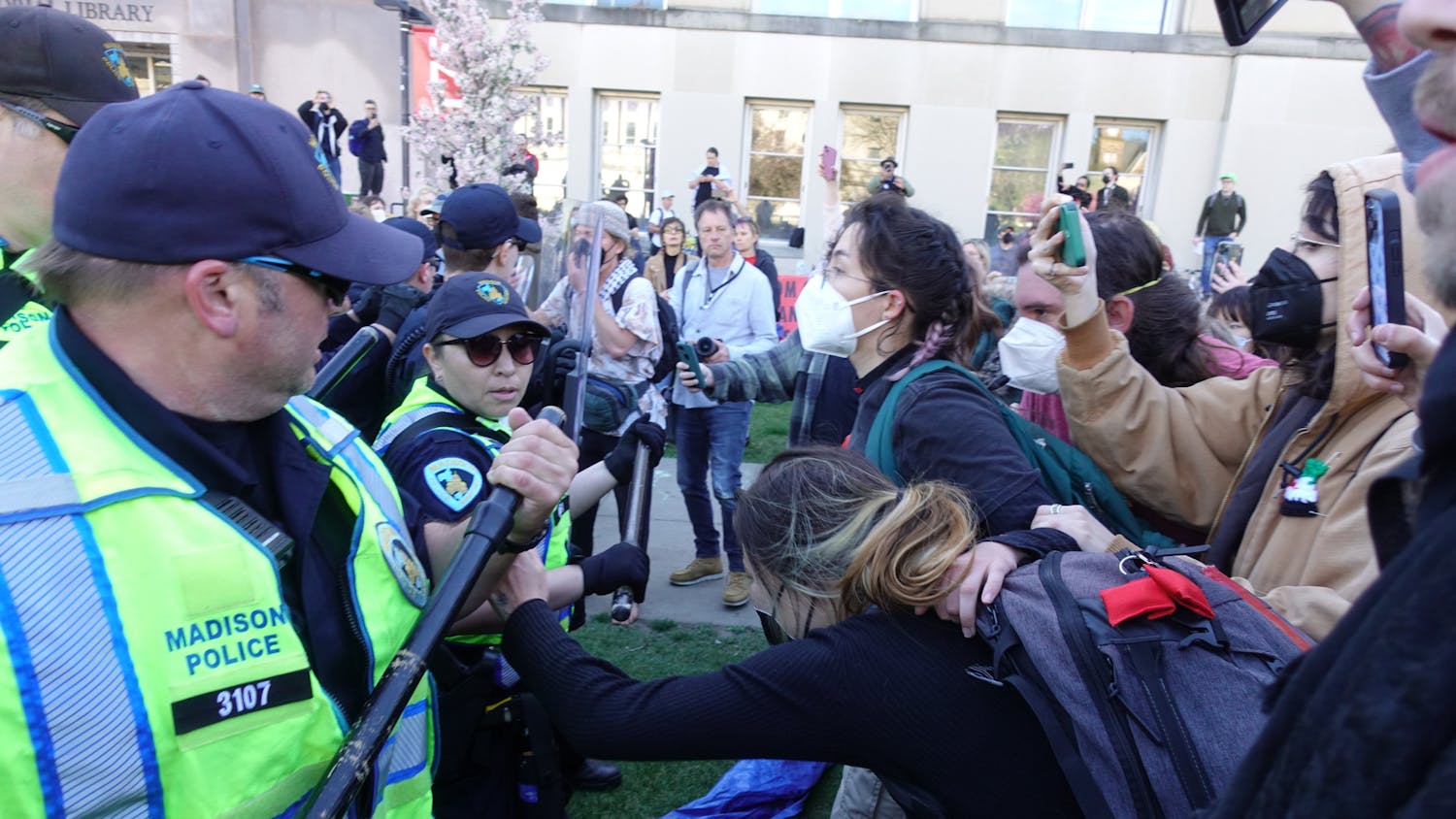Over the course of the fall semester, 22 teachers from 12 different countries across Eastern Europe and Central Asia honed their skills at the School of Education as part of the Fulbright Teaching Excellence and Achievement (Fulbright TEA) program. The educators were part of the Fulbright TEA Media Literacy Cohort, which aims to help teachers develop and promote media literacy skills in their communities back home.
The program is administered by IREX and funded by the Department of State, and is only available to educators in 15 countries.
“The purpose of the program is to bring teachers together from different parts of the world to come into conversation with others about teaching practices, new pedagogies and how to confront global challenges such as media literacy,” said Kate McCleary, associate director of the School of Education’s Global Engagement Office.
The educators were in the Madison area from Sept. 13 to Oct. 24 and took seminars at the University of Wisconsin-Madison while simultaneously receiving media literacy training from PBS Wisconsin. They also had an opportunity to tour the Wisconsin State Capitol, sit in on a Badgers volleyball game and visit Chicago.
The teachers interacted with approximately 960 Madison, Monona and Cottage Grove students, and the program included five main components: media literacy and technology, ESL & language pedagogy, social studies education and contemporary issues in education.
Many of the guest educators shared they felt it was a great opportunity to mold them not just as educators, but as people.
“I decided to apply for the Fulbright TEA Media Literacy program because I recognized it as a unique chance to develop myself not only as an educator but also as an individual,” said Ausma Sereiviene, a Lithuanian teacher in the program.
For others, taking in the so-called “Midwest nice” way of teaching helped them recognize a different education style that many say they look forward to using back home.
“I have learned a lot of things during my time in Madison, from teaching approaches and media literacy techniques to classroom interaction protocols and group dynamics management in youth and adult classes — I have gathered knowledge and relevant materials that will reshape and improve my practice,” said Maria Cristina Mocanu, a teacher from Romania.
Many of the teachers who reflected on the program also acknowledged that a key takeaway from the Media Literacy Cohort was the mutual exposure to different cultures this opportunity presented.
The Madison-area teachers who facilitated this program got the opportunity to learn about a region in Europe and Asia that is sometimes overlooked, and the guest educators were able to learn about Midwest culture and Wisconsin life, something many of them said they wouldn’t get to learn about otherwise.
“The group was so curious about U.S. culture and exploring as much of the area as possible while they were here,” said McCleary.
For many, this initiative was their first opportunity to visit Wisconsin.
“I knew nothing about Madison and Wisconsin prior to finding out that it was our destination,” said Riina Pauklin, one of the guest educators. “It surprised me how open, polite, and friendly Americans are. I didn’t expect Madison to be so beautiful.”
The program served as a means to unite Midwest and Eastern European culture for both the visiting and Madison-area teachers.
“I am confident that people at UW–Madison as well as those in the community have learned a bit more than they had known about Romania and Europe prior to meeting me, as it happens when one gets to meet people from places that are rather unexplored,” said Cristina Mocanu.
Nearly everyone agreed that this was an opportunity that enhanced their understanding of different cultures and how they compare to the more familiar ones back home.
“You can learn so much about our shared world if you are willing to make time to sit down, ask questions and listen,” said McCleary. “Having the time and space to get to know 22 people from other parts of the world who are committed to teaching, and change agents in their home communities was incredibly rewarding.”
Editor's note: This article was updated at 3:15 p.m. on Thursday, Feb. 9 to include links to where the teachers shared their quotes with the School of Education and to remove a detail on work with PBS Wisconsin.






